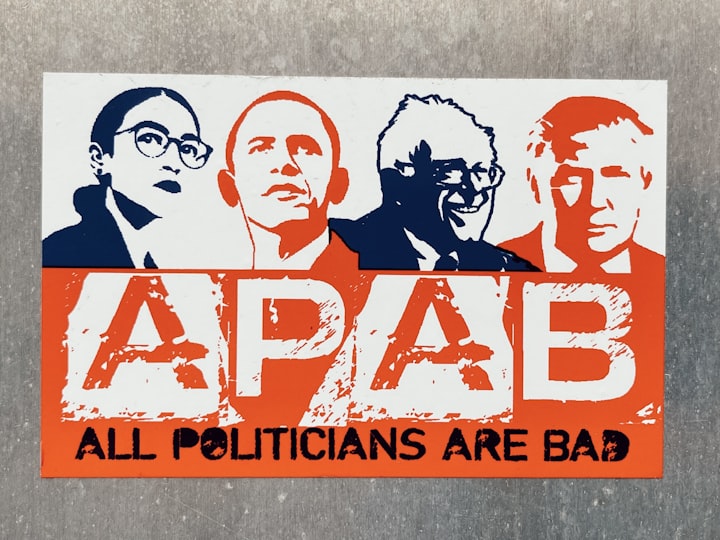Alex Jones, Sandy Hook, and the Lawsuit That Can Challenge Freedom of Speech
Alex Jones has been ordered to pay the Sandy Hook families nearly $1 billion in damages. This lawsuit could have a significant impact on freedom of speech.

In a marked victory for the families of the Sandy Hook shooting victims, Alex Jones has been ordered to pay them nearly $1 billion in damages.
This comes after two defamation lawsuits against the Infowars founder were successful, with juries finding that he had lied about the mass shooting to sow discord and conspiracy theories. Jones is likely to appeal these decisions, but if upheld, it could have grave implications for free speech rights in the United States.
Who is Alex Jones?
Alex Jones is a well-known conspiracy theorist who peddles outrageous claims and promotes unfounded theories. One of his most controversial topics is the alleged "Sandy Hook hoax," in which he claims that the tragic mass shooting at an elementary school in 2012 was just a staged event designed to garner support for gun control laws.
For years, Alex Jones has been publicly lambasted by critics and legal experts, who condemned his dangerous rhetoric and blatant lies. Recently, however, Alex Jones found himself on the receiving end of defamation lawsuits. Several Sandy Hook families filed lawsuits against him for claiming that they were actors playing fictitious victims.
This blog post will look at the background of these lawsuits and what might happen next.
1. What is defamation, and why did Alex Jones allegedly commit it against the Sandy Hook families?
Defamation is the act of knowingly spreading false information about a person or entity with the intent to harm their reputation.
According to criminaldefenselawyer.com, under the heading of Intentional Torts: Purposeful Acts:
"Some civil wrongs result from intentionally "bad" acts by defendants, such as intentional misrepresentation (fraud), defamation (damaging lies), and employment discrimination."
In the case of Alex Jones and the infamous Sandy Hook conspiracy theory, it seems that Alex Jones has committed defamation against the families of Sandy Hook victims by claiming that they were all actors and that no one was actually killed in that tragedy. Alex Jones' claims have given rise to a defamation lawsuit, alleging that Jones intentionally spread these lies to increase his fame and profit from the paranoia and fear he inspired in his listeners.
His actions harmed countless people and created an atmosphere of mistrust and fear. In the end, Alex Jones may have done more harm than good.
2. What evidence was presented in court to support this claim?
In court, various pieces of evidence were presented to support the claim that Alex Jones is responsible for inciting violence and spreading false information. This evidence includes audio recordings of Jones directly contradicting himself on air. And video surveillance footage showing Alex Jones avoiding encounters with Sandy Hook families during a protest.
Ultimately, Alex Jones was held accountable for his harmful misinformation campaign and found legally liable for perpetuating the harm caused by one of America's deadliest shootings.
3. What are the potential consequences of a successful defamation lawsuit for the defendant?
The potential consequences of a successful defamation lawsuit can be quite severe for the defendant. For example, in this case, Alex Jones has been found liable for spreading misinformation about the tragic events at Sandy Hook Elementary School. As a result, he could face considerable fines or even jail time.
Furthermore, with his reputation and credibility in tatters, Alex Jones would likely struggle to continue his activist work or maintain his sizeable online following.
In short, a successful defamation lawsuit can damage not only the accused individual's reputation but also their livelihood and career. As such, anyone facing a defamation lawsuit must take these risks seriously to avoid serious repercussions.
4. What impact could a liable verdict have on free speech rights in the United States?
There have been many discussions recently about the impact of a liable verdict on free speech rights in the United States. But, overall, I believe the outcome of Alex Jones' case will neither significantly strengthen nor weaken our country's commitment to freedom of speech.
However, I am aware that the line between drawing valid criticism and inciting hatred or violence has always been somewhat blurry, making it difficult to determine where freedom of speech ends and hate speech begins. This is evident in Jones' case, which hinges on analyzing his inflammatory statements and their potentially harmful impact on certain groups.
While some have argued that a guilty verdict would set a dangerous precedent regarding free speech protections, I don't think this will be the consequence. As we've seen time and again throughout our history as a nation, our commitment to free expression ultimately takes precedence over concerns about harassment or discrimination based on race, gender identity, or sexual orientation.
In fact, even if Alex Jones had lost his case outright today in court ― which he admittedly did ― I'm confident that those who value civil liberties would remain strong advocates for protecting Americans' right to express themselves without fear of punishment.
So, ultimately, although the outcome of Jones' case may stir up some controversy and debate about where exactly to draw the line between free speech and hate speech in this country, it is unlikely to have any significant impact on our collective commitment to protecting people's right to express themselves without fear or persecution freely.
And while some may view attempts to curb Alex Jones' influence as an attack on free speech, we must remember that this particular case is unique. Alex Jones used malicious and inflammatory rhetoric. Therefore, we must set a clear line rather than silencing dissenting opinions or defending Alex Jones at all costs. In addition, we must differentiate between legitimate criticism of government power and irresponsible, baseless claims that could harm innocent people.
Our freedom of speech depends on it.

5. Are you satisfied with the case's resolution?
When Alex Jones was recently slapped with a lawsuit by the parents of some of the victims of the Sandy Hook massacre, many people wondered how this case would ultimately be resolved.
Some argued that Jones' free speech rights were being violated. In contrast, others believe that his incendiary claims and debunked conspiracy theory regarding the tragic shootings crossed a line.
I think that Alex Jones is rightfully found liable in this case. Although he has claimed that his comments about Sandy Hook were meant as satire or parody, it is clear that they had a very real impact on the grieving parents. The latter lost their children in that horrific attack.
And in today's world, where fake news and misinformation can spread like wildfire across social media platforms, we must take steps to protect vulnerable groups from defamation and harassment.
Whether Alex Jones likes it or not, his days of spreading baseless conspiracy theories and spreading hateful lies online seem to be coming to an end. Eventually, I believe he will have to face the consequences of his actions and accept responsibility for undermining public trust and exacerbating tensions around highly sensitive issues like mass shootings.
In the end, justice will prevail for those who his reckless words and dangerous agenda have wronged.
In closing, Sandy Hook families suing Alex Jones is a unique case due to the severity of Alex Jones' inflammatory rhetoric. Now that he is found liable, it will set a precedent that could further suppress controversial viewpoints. I'm open to recognizing this fact.
However, I believe that Alex Jones's case will neither significantly strengthen nor weaken our country's commitment to freedom of speech. Sandy Hook families should be compensated for the loss of their loved ones. Fortunately, Alex Jones has been found liable in this case.
About the Creator
Edy Zoo
Edy Zoo is an author who writes about social subjects. He contributes to the ever-growing library of social critics.






Comments
There are no comments for this story
Be the first to respond and start the conversation.